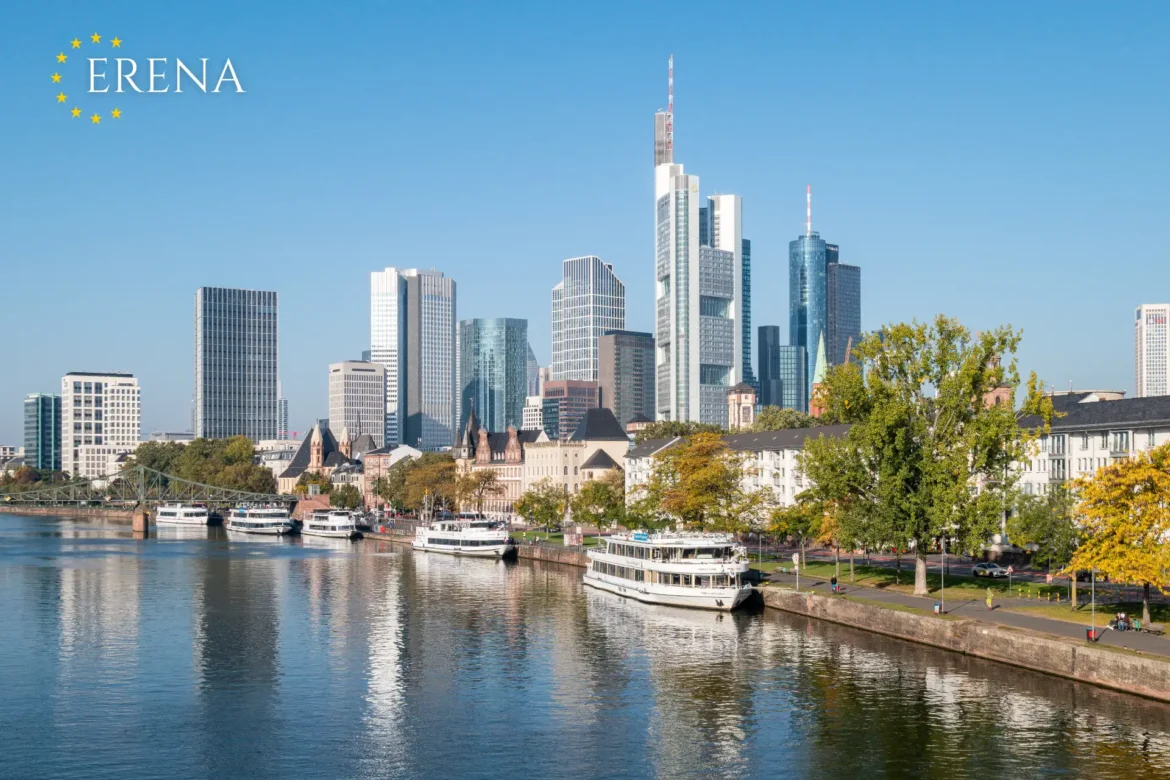Germany is renowned for its economically strong cities that play a vital role not only in the national but also in the global economy. Among them, Frankfurt am Main stands out as the richest city in the country. It is not only the financial and business center of Germany but also a cultural gem. This text delves into Frankfurt’s development over recent years, its main challenges, and the prospects for 2025.
Economic Development in Recent Years
1. Financial Hub of Europe
Frankfurt occupies a leading position among Europe’s financial centers. The European Central Bank (ECB), located here, manages the monetary policy of the eurozone. The city is also home to the headquarters of Deutsche Bank, Commerzbank, and other major financial institutions. Following Brexit, Frankfurt attracted numerous international banks previously based in London. This influx has not only strengthened the city’s status but also created thousands of new jobs.
In recent years, fintech companies have played an increasingly significant role in the city’s economy. Innovations such as blockchain, artificial intelligence, and automation are actively being implemented in the financial sector, making Frankfurt even more competitive on the global stage.
2. Logistics and Transportation
Thanks to its strategic location, Frankfurt is one of Europe’s largest logistics hubs. Frankfurt Airport, among the busiest in Europe, handles millions of passengers and cargo annually. The city’s rail network connects it to major economic centers in Germany and Europe, while modern highways ensure fast transportation of goods and people.
Investments in transport infrastructure remain a priority for city authorities. Improvements in public transportation, road modernization, and the adoption of environmentally friendly technologies allow Frankfurt to maintain its position as a vital transport hub.
3. Technology and Innovation
Frankfurt is actively developing its innovation sector, creating conditions for startups and tech companies. Initiatives like TechQuartier provide support for young entrepreneurs. The city’s universities and research centers collaborate with businesses, fostering the creation of innovative products and services.
Key focus areas include:
• Artificial intelligence;
• Green technologies;
• Digital platforms for business.
These initiatives not only stimulate the economy but also create jobs for highly skilled professionals.
4. Culture and Quality of Life
Frankfurt is not just an economic center but also a cultural capital. The city is home to famous museums such as the Städel Museum and the Museum of Modern Art, which attract thousands of tourists annually. The Frankfurt Book Fair is one of the largest cultural events in the world.
The quality of life in the city is high, thanks to its developed infrastructure and access to quality education and healthcare. Green spaces like the Palmengarten provide a comfortable environment for recreation and relaxation.
Challenges and Issues
Despite its successes, Frankfurt faces several challenges that require solutions.
1. Rising Housing Costs
High demand for housing, driven by an influx of professionals and companies, has led to a sharp increase in property prices. This makes the city less affordable for middle-class families and young professionals. The housing crisis remains one of the key issues requiring attention from authorities.
2. Environmental Challenges
Economic activity and intensive transport development have negatively impacted the environment. Despite the implementation of green technologies, air pollution levels remain high. Expanding public transportation and transitioning to electric vehicles could improve the situation, but these measures require significant investments.
3. Social Inequality
Frankfurt is a city of contrasts, where the prosperity of the financial sector coexists with poverty in certain areas. Some groups face difficulties accessing quality housing, education, and medical services. The gap between wealthy and low-income residents creates social tension.
4. Infrastructure Strain
The rapid increase in population places a strain on public transportation, schools, and hospitals. This requires large-scale investments in expanding and modernizing the city’s infrastructure.
Forecast for 2025
1. Economic Growth and Innovation
Frankfurt will continue to develop as a financial and technological hub. By 2025, the city is expected to strengthen its position through the implementation of digital technologies, the development of green finance, and the expansion of the number of international companies headquartered here.
2. Addressing the Housing Crisis
City authorities are actively working to increase the availability of housing. New projects for residential complexes and reforms in the real estate market will help alleviate pressure on the housing sector.
3. Environmental Initiatives
Frankfurt aims to achieve climate goals, including reducing CO2 emissions and transitioning to renewable energy sources. The development of electric transportation, cycling infrastructure, and green spaces will be an essential step toward improving the city’s environmental situation.
4. Infrastructure Investments
By 2025, several major infrastructure projects are expected to be completed, including the expansion of the metro system, road modernization, and the construction of new schools and hospitals. These measures will help address the growing population and improve the quality of life for residents.
5. Social Support Programs
To combat social inequality, Frankfurt plans to implement programs supporting low-income families, improving educational opportunities, and increasing access to healthcare services. These measures aim to create a more harmonious and equitable society.
Frankfurt am Main is rightfully considered the richest city in Germany. Its economic prosperity, innovative achievements, and high standard of living make it an example for other cities. However, Frankfurt faces serious challenges, such as rising housing costs, environmental problems, and social inequality.
By 2025, Frankfurt has every chance to strengthen its position as a financial and cultural center of Europe. Sustainable development, the adoption of technologies, and care for its residents will enable Frankfurt to remain a symbol of prosperity and innovative approaches.
The Richest City in Germany – Development in Recent Years and Forecast for 2025
901

